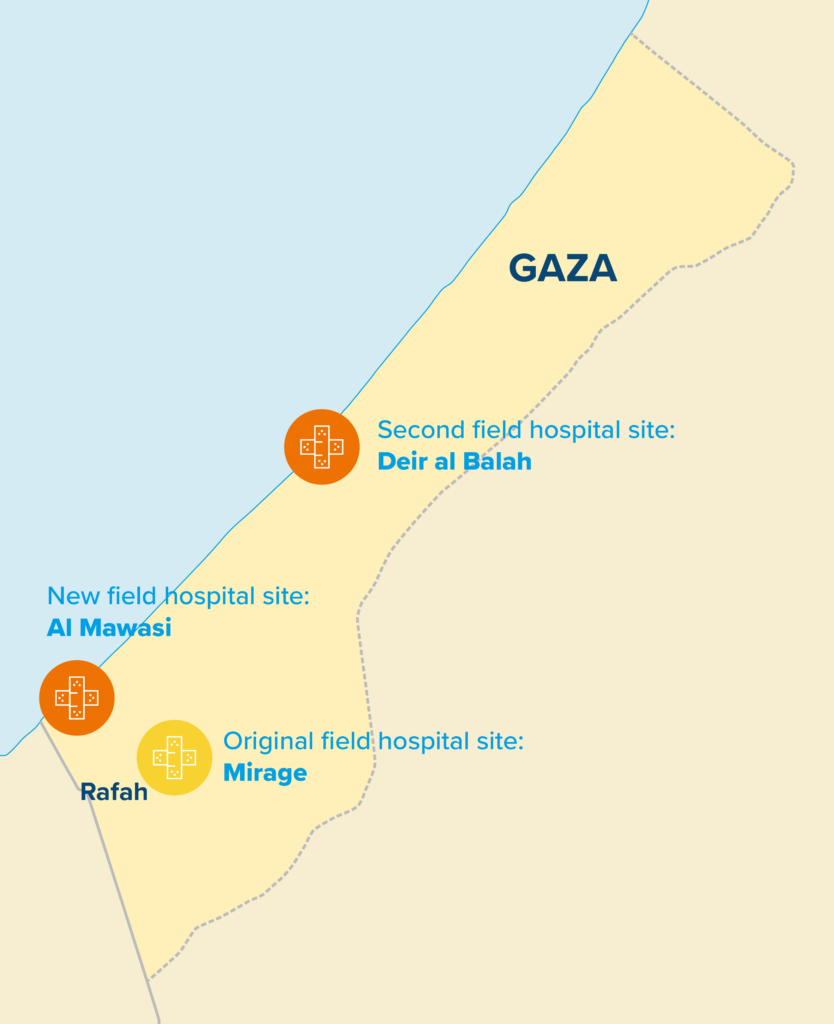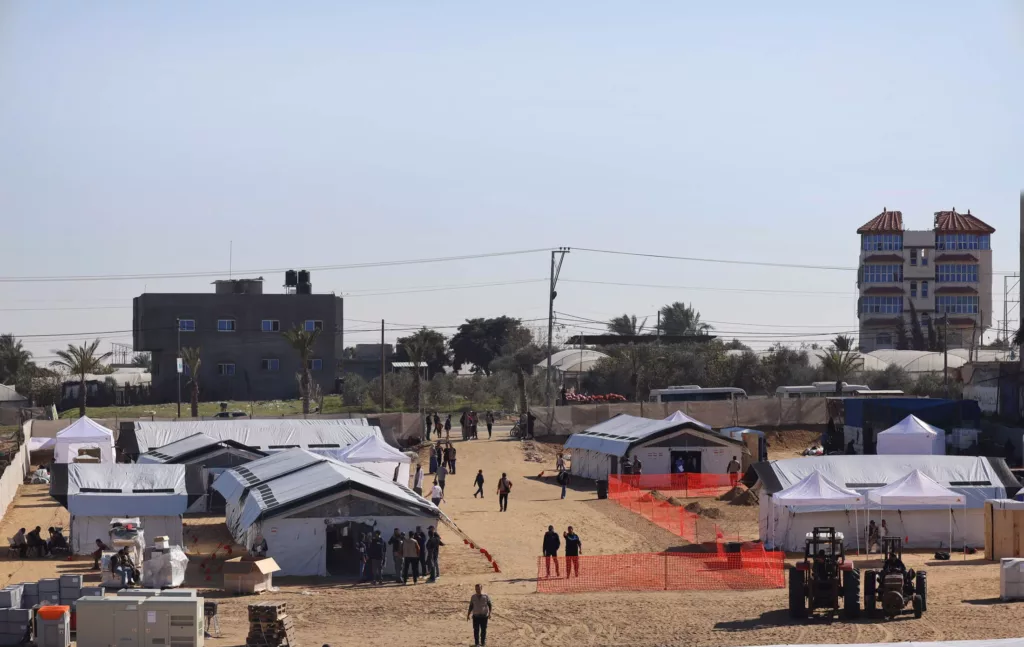Israel
In Israel, where International Medical Corps does not have an operational presence, we are supporting ongoing response and recovery efforts by long-time partner JDC, which is providing health and mental health services to affected communities—with a focus on children, older people and people with disabilities—as well as training first responders and healthcare workers.
Gaza
International Medical Corps has worked in Gaza since 2008. Over the last 15 years, we have served as a critical partner to the health system across each of Gaza’s five governates—supporting the delivery of health and mental health services.
In response to the ongoing crisis, International Medical Corps deployed a 140-bed field hospital to Rafah in southern Gaza. Our hundreds of staff members are providing surgical care for trauma, physical rehabilitation, comprehensive emergency obstetric and newborn care, advanced mental health and psychosocial support (MHPSS), child protection, nutrition support, water, sanitation and hygiene (WASH) services, and more. We currently are providing care to as many as 800 civilians per day.
Here is an overview of the services we have provided so far through our field hospitals. All numbers, unless otherwise noted, are cumulative from January 6 through March 31.
After overcoming significant logistical challenges, International Medical Corps opened its field hospital near Rafah on January 6. Since then, International Medical Corps has:
- provided 41,563 consultations;
- performed 3,250 surgeries and delivered 502 babies;
- reached 1,706 people with MHPSS services; and
- deployed 135 tons of medicines, medical equipment and supplies.
About Our Field HospitalOur field hospital is:
|
Logistics
International Medical Corps coordinated with the World Health Organization, Egyptian Red Crescent and other international agencies, organizations and regional authorities to transport the field hospital into Gaza. International Medical Corps:
- built the field hospital from the ground up in seven days;
- organized the delivery of medicines, medical equipment and supplies through 10 air and 20 truck shipments;
- set up a solar-powered water-desalination plant, which so far has produced more than 513,000 gallons of clean water for use in our field hospital; and
- leveraged relationships with trusted local non-profit organizations to set up biowaste disposal, laundry services and more.
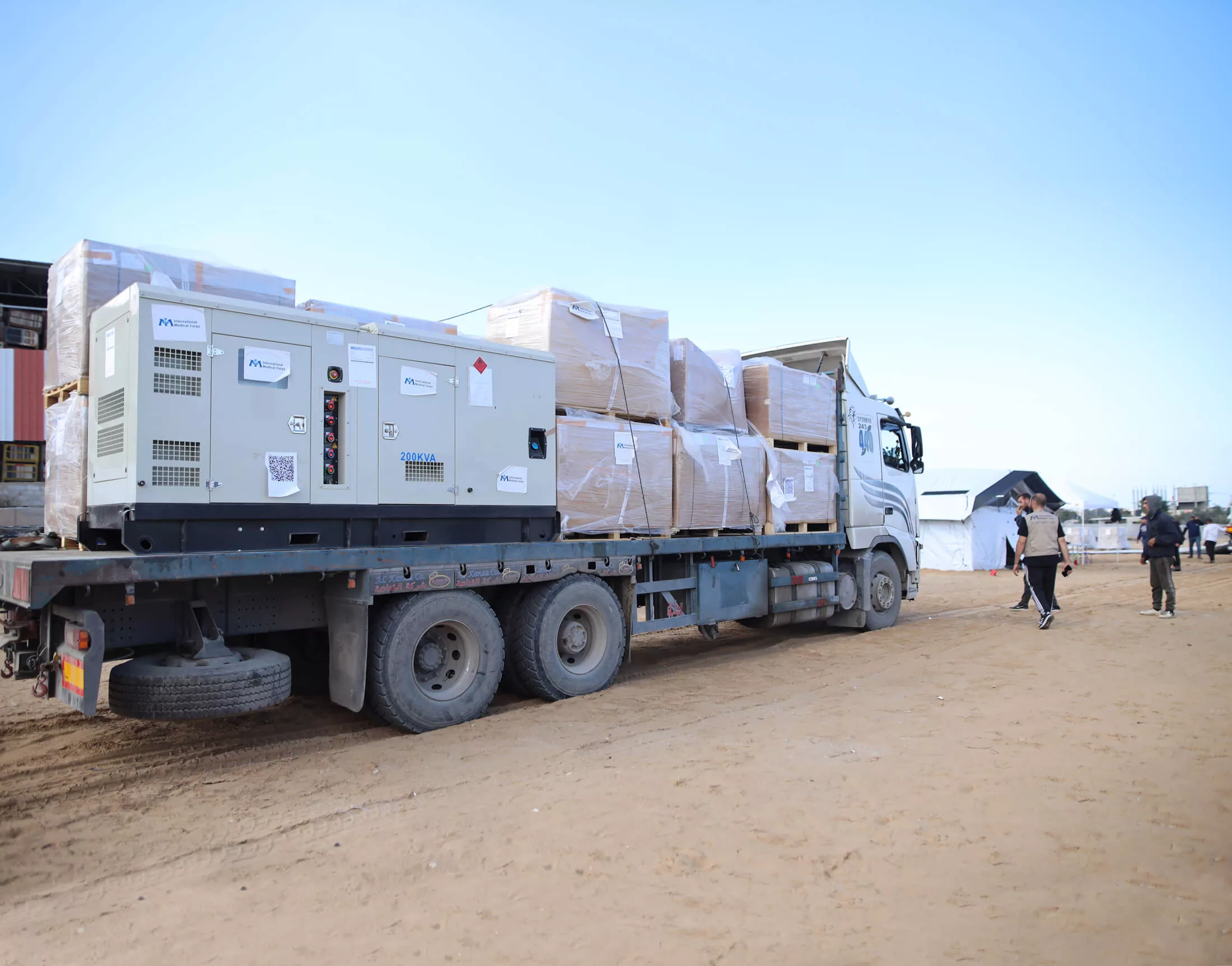
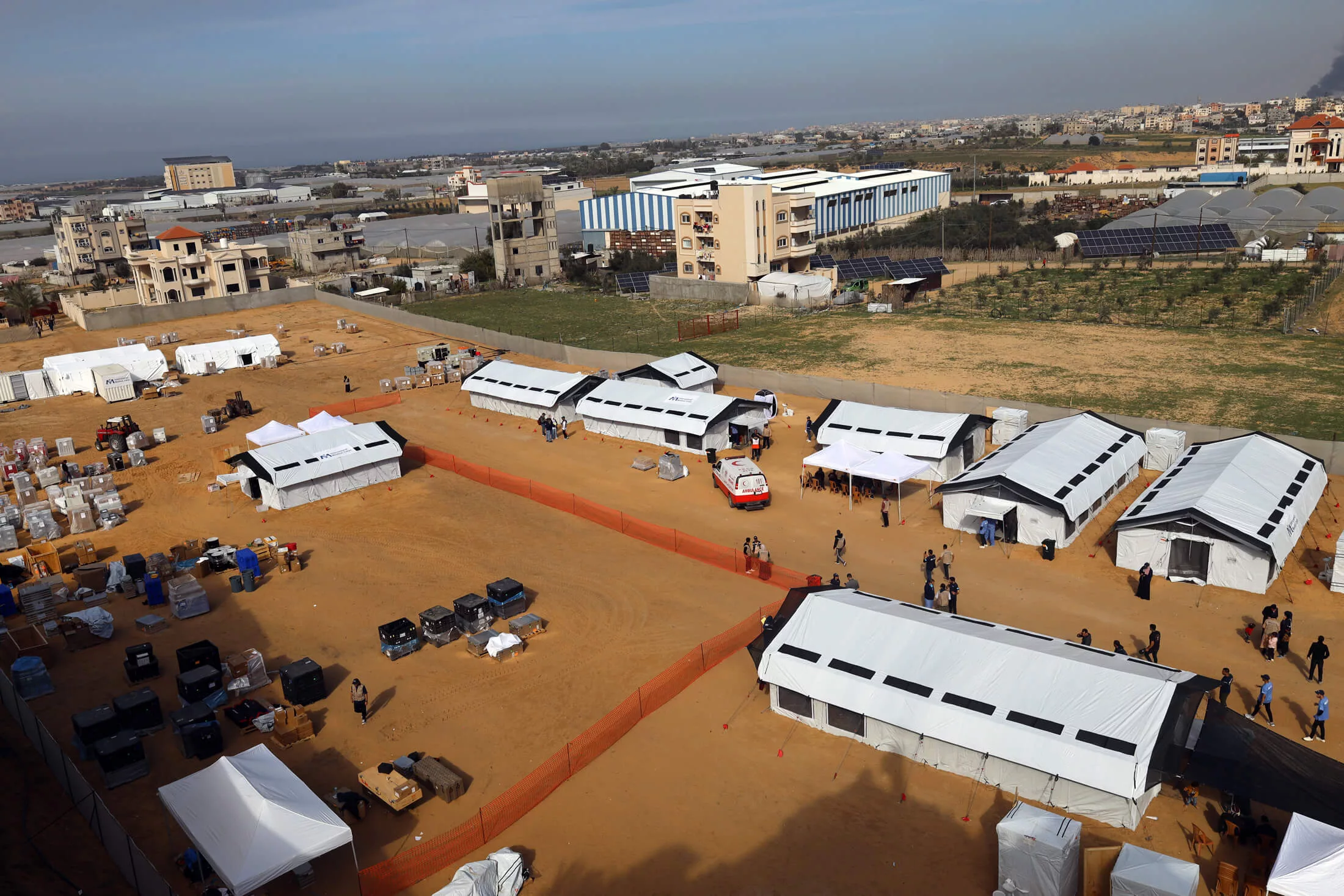
Emergency and Surgical Services
The conflict has led to an extreme caseload of orthopedic and physical trauma injuries. Our hospital is fully equipped and staffed with a team of surgical specialists to stabilize patients, perform operations and preserve functionality of injured limbs. So far, we have:
- provided 3,250 surgical and emergency trauma care consultations;
- performed an average of 20 major and minor surgeries daily;
- delivered an average of nine babies (including C-sections) daily; and
- conducted 1,305 post-surgical follow-up consultations (as of February 29).
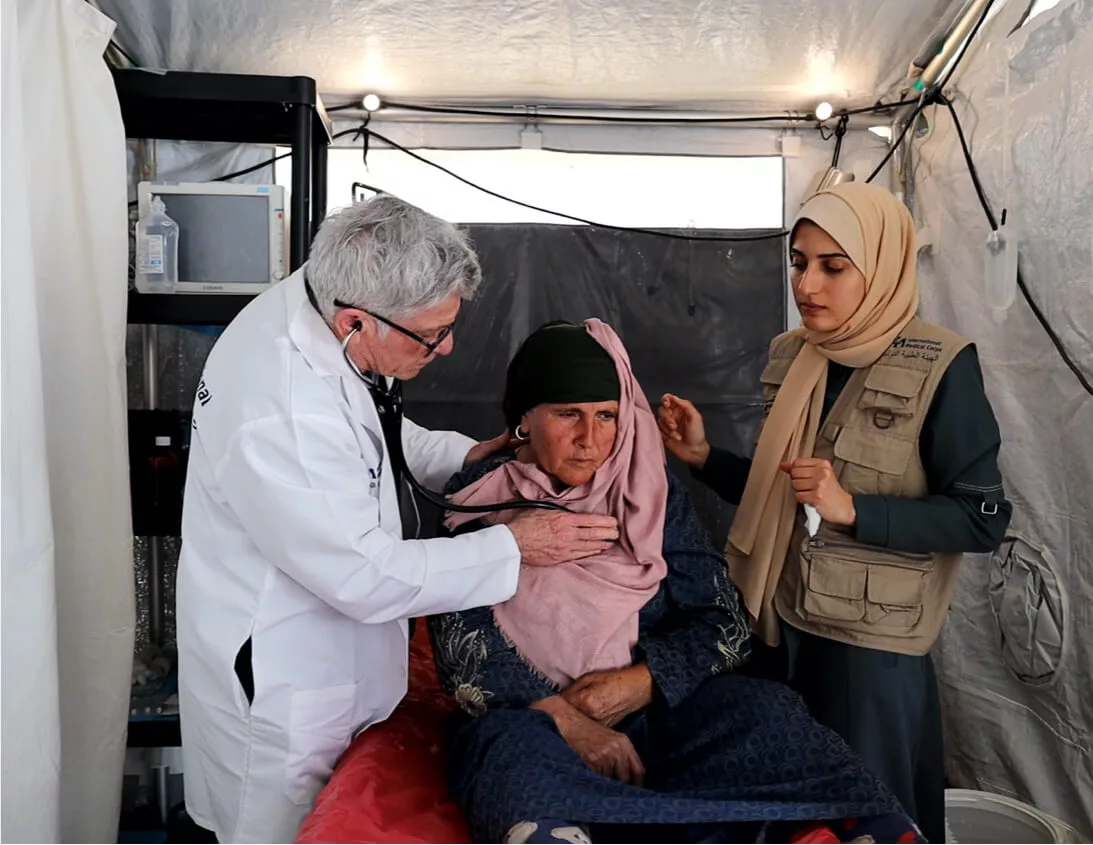
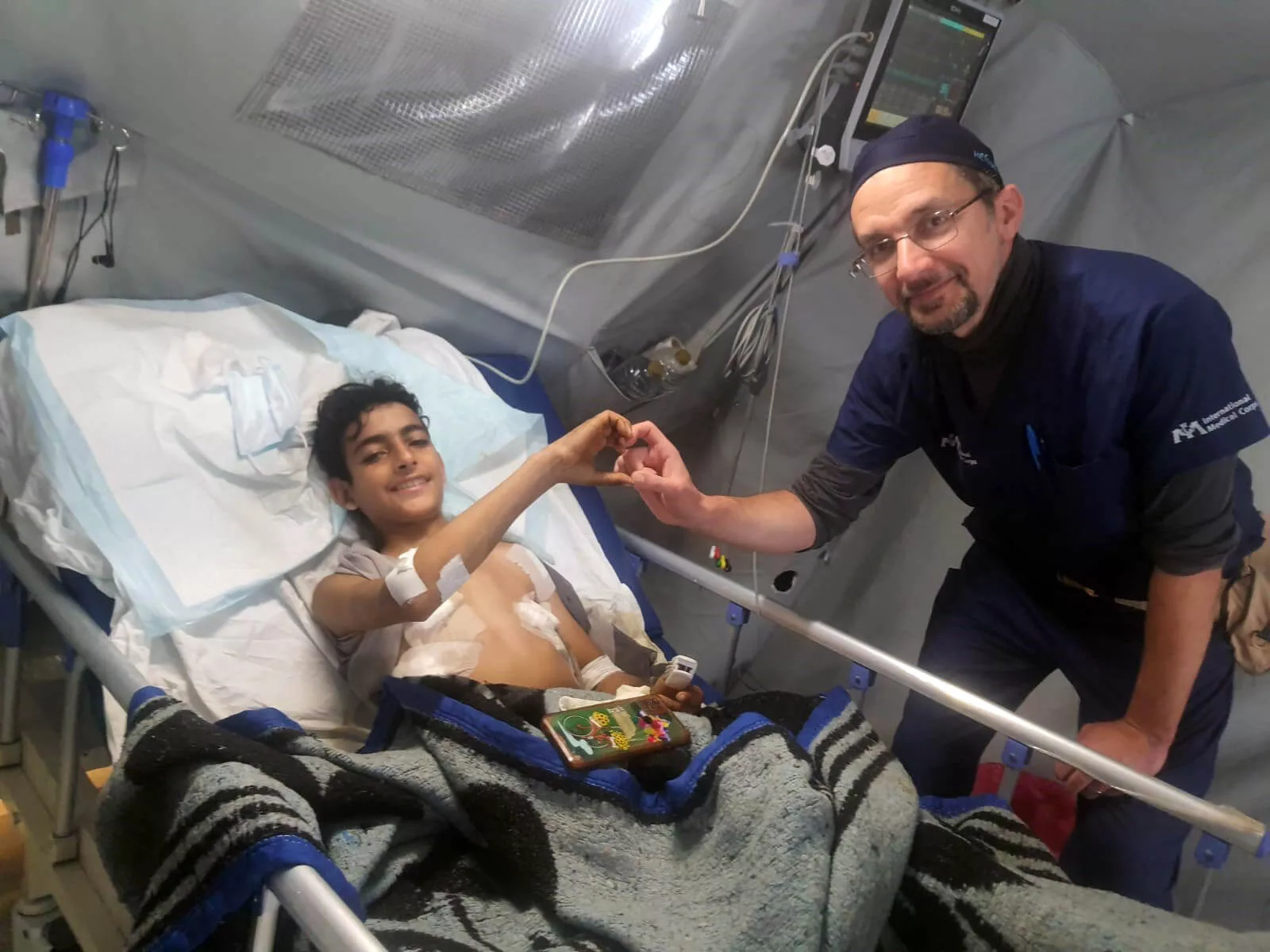
Maternal and Child Health
Even in a stable living environment, pregnant and lactating women (PLWs), as well as their children, face increased health risks and require unique care. These risks are severely exacerbated in times of conflict, when access to healthcare, food, water and other basic necessities are scarce. So far, we have:
- provided health consultations to 3,329 pregnant women;
- delivered 502 babies, including 87 through Cesarean section;
- provided 241 pregnant women with nutrition interventions specifically tailored to support a healthy pregnancy;
- hosted infant and young-child feeding counseling sessions with integrated lactation support, reaching 1,699 people;
- reached 649 PLWs and children through prophylactic distribution of vitamin A; and
- reached 286 children through prophylactic deworming treatment.
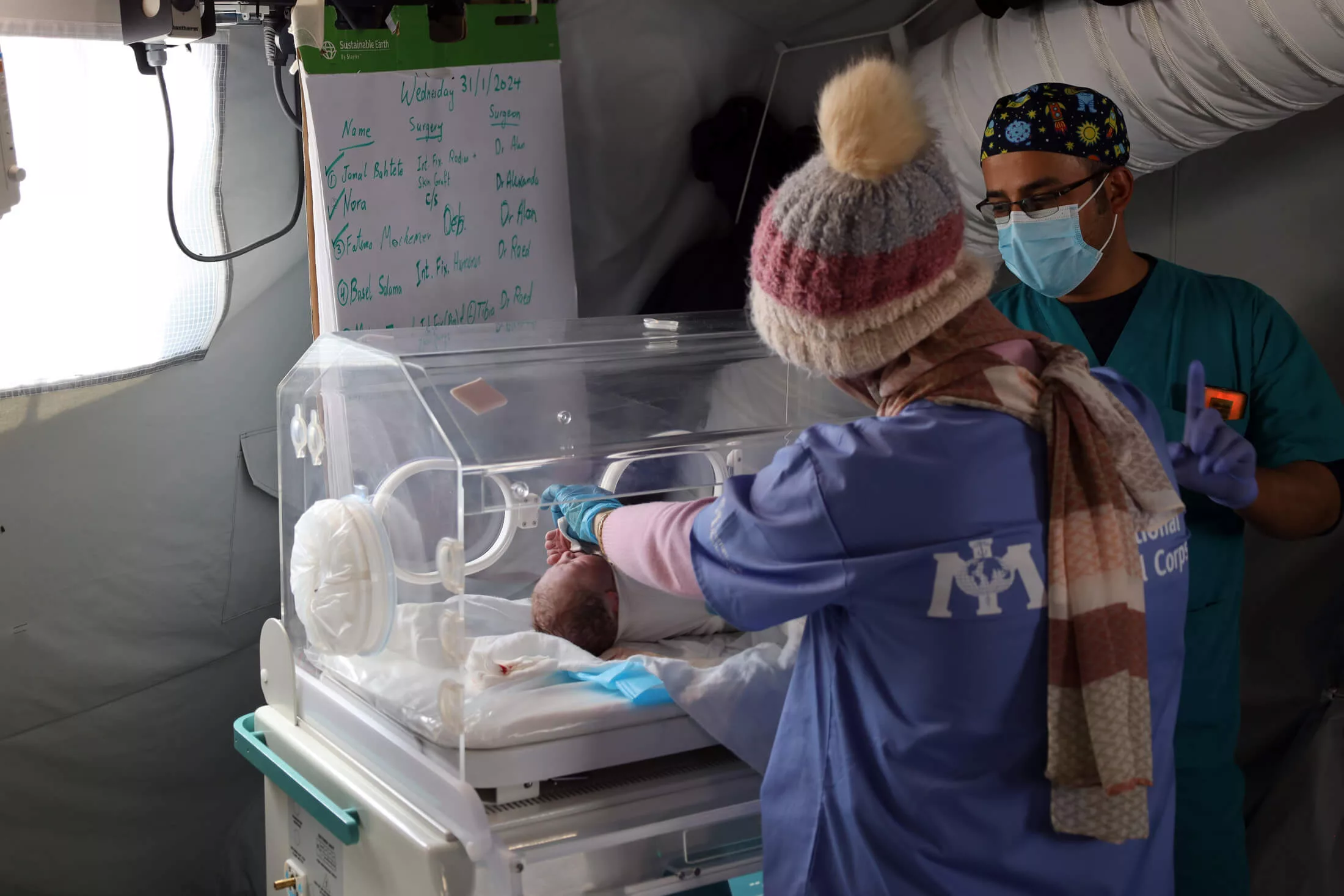
Mental Health and Psychosocial Support
The experience of living in a war zone can have a lifelong effect on mental health. To address this growing need, we provide an array of MHPSS services at our field hospital. So far, we have:
- reached 1,304 people with psychological first aid (PFA) services;
- conducted 128 individual mental health counselling sessions;
- hosted 35 group therapy sessions; and
- reached 674 people through awareness-raising sessions, covering topics such as stress management and dealing with grief.
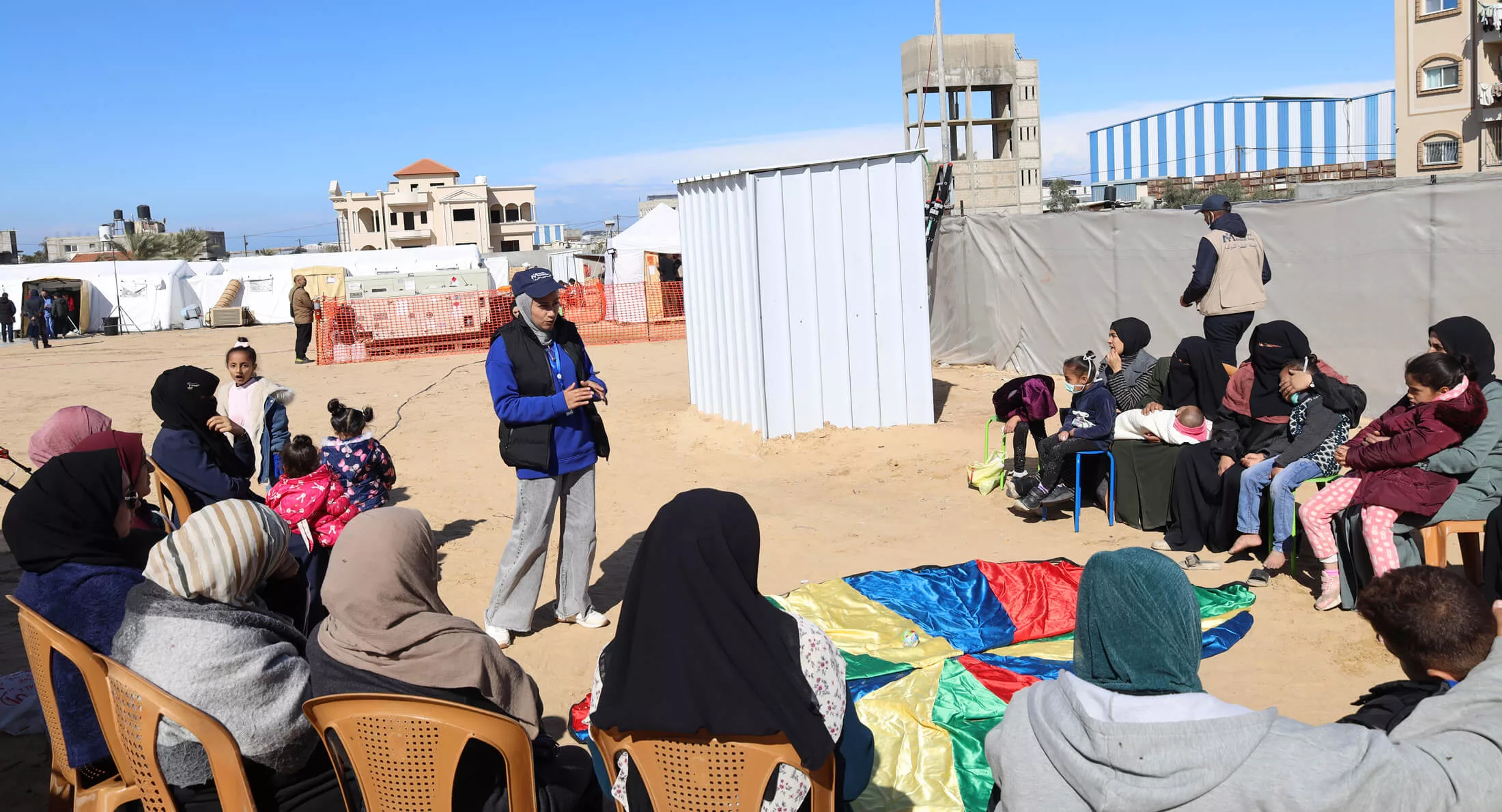
Child Protection Services
Roughly half of Gaza’s entire population is children. With many children orphaned or separated from their caregivers, the need for protection and MHPSS services among this highly vulnerable group is extremely high. International Medical Corps has:
- hosted 1,272 children in our child-friendly space, where children can socialize and access mental health resources;
- provided PFA to 468 children;
- managed care plans for 38 children through our case management program;
- trained 127 caregivers on identifying and responding to signs of child abuse and abnormal child behavior;
- provided individual counseling sessions for 196 children who showed signs of psychological trauma; and
- hosted an Open Recreation Day for 72 children, where they had the opportunity to engage in games, art and group meals.
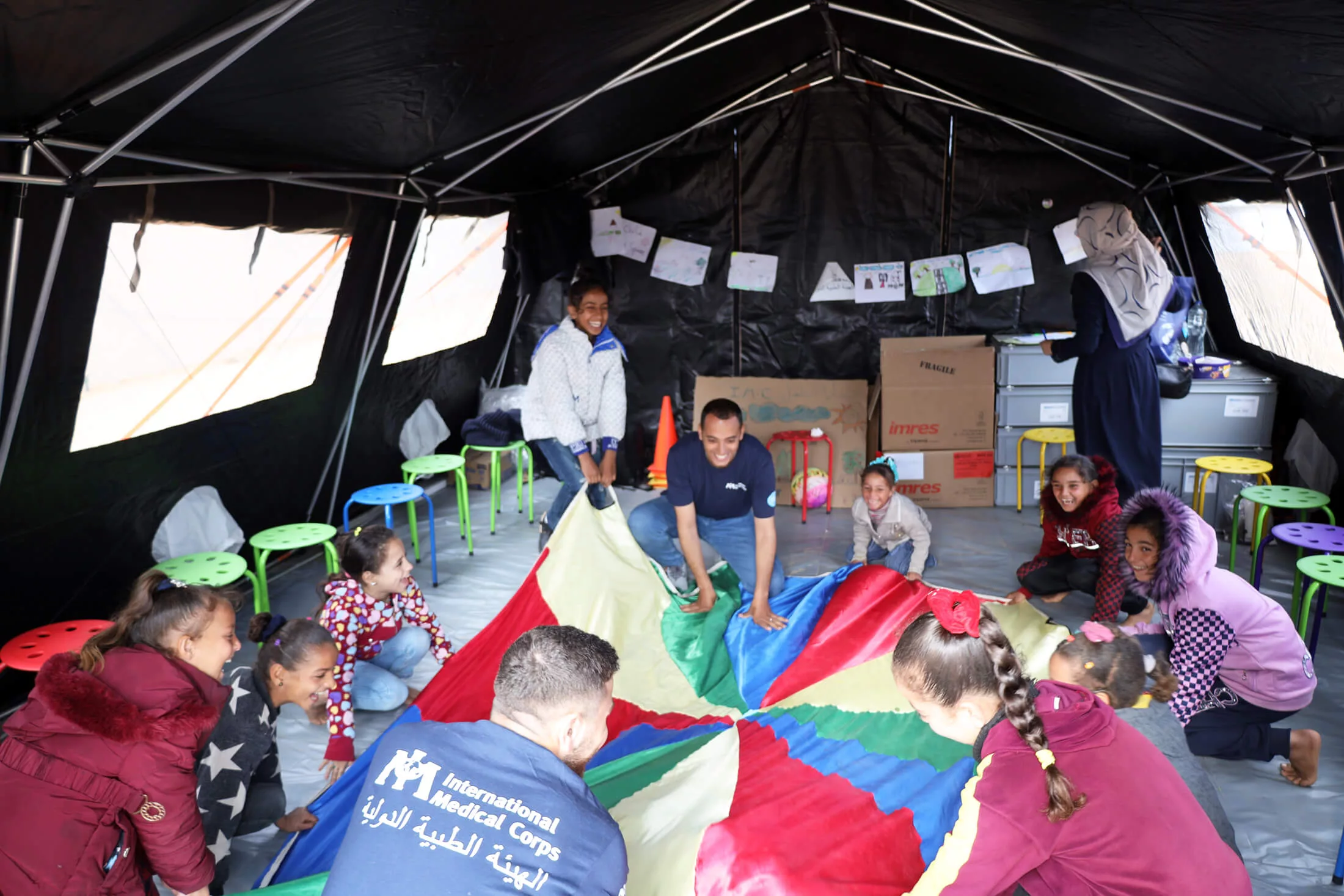
Nutrition Services
The amount of food being delivered into Gaza is not nearly enough to keep up with skyrocketing demand. According to the World Food Programme, more than 2.2 million people in Gaza are facing crisis-level food insecurity and as many as 576,000 are facing catastrophic starvation. In response, we have:
- screened 2,841 children under 5 for malnutrition;
- identified and treated 149 cases of moderate acute malnutrition and 58 cases of severe acute malnutrition;
- identified and treated 1,363 cases of malnutrition among pregnant and lactating women;
- provided infant and young-child feeding counselling services to 1,699 people; and
- provided ready-to-eat meals to 29,430 people.
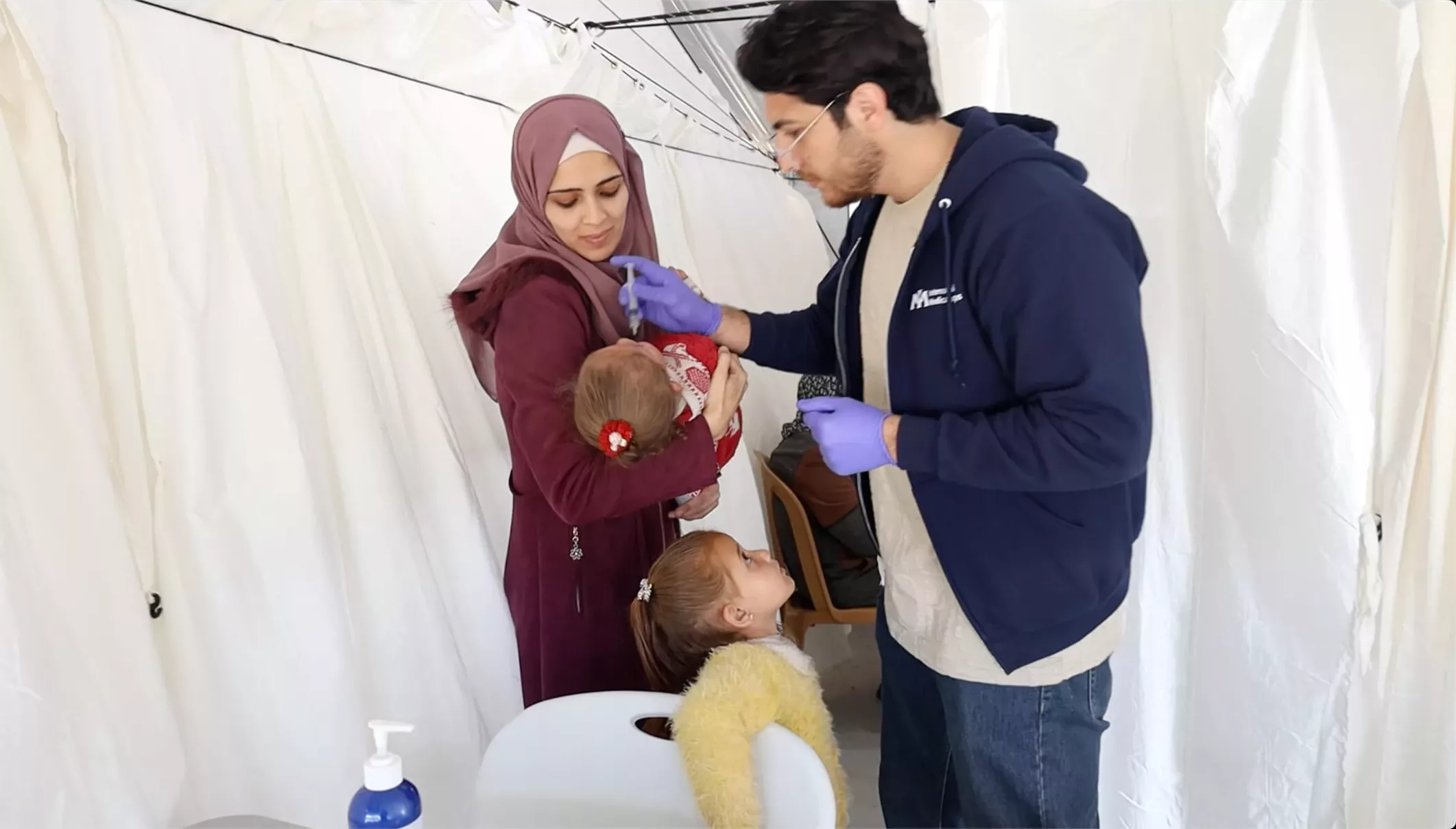
Moving Forward
With no immediate end to the conflict in sight, the need for health and related services remains high. International Medical Corps is expanding our field hospital to reach as many people in need as possible. We are:
- increasing the capacity of our field hospital from 140 beds to nearly 200 beds, with an additional five tents;
- expanding ICU capabilities, trauma services and orthopedic and plastic surgery, as well as ancillary services, including the laboratory, blood bank and physiotherapy;
- adding two mobile operating theaters to increase the number of surgeries provided; and
- opening a second field hospital in Deir al Balah to expand our capacity to provide emergency obstetric, newborn and primary care.
